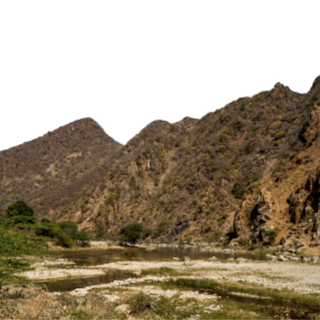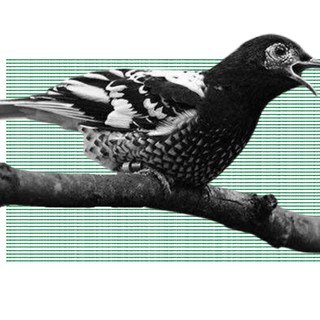Human brains became larger, and human beings became more intelligent, as the number of larger mammals around our ancestors declined — forcing humans to rely on smaller, swifter prey for sustenance, a new study suggests.
Published in Quaternary, the study says that as big mammals became extinct, humans were forced to shift attention to smaller prey — which meant their new targets were able to escape at greater speeds and it became difficult to hunt them. Humans thus had to chase smarter, leading to an evolution of their brain sizes. Moreover, since the animals they hunted were smaller, humans also had to hunt more — dozens of gazelles were chased instead of one elephant, for instance — amplifying the need for early humans to constantly be smarter in their approach.
“We correlate the increase in human brain volume with the need to become smarter hunters,” Miki Ben-Dor from the Department of Archaeology at the Tel Aviv University in Israel, who co-authored the study, said in a statement. Experts note that at present, the human brain is just 4% of our body size but uses 20% of our energy.
Related on The Swaddle:
Scientists Discover a Plant That Is Evolving To Become Less Visible To Humans
With the extinction of larger mammals, other evolutionary pressures also piled on to make humans more reliant on their intelligence. “…evolutionary pressure caused humans to use language, fire, and sophisticated tools such as bow and arrow, adapt their arms and shoulders to the tasks of throwing and hurling and their bodies to the prolonged chase, improve their stone tools, domesticate dogs, and ultimately also domesticate the game itself and turn to agriculture,” Ran Barkai, from the Department of Archaeology at the Tel Aviv University in Israel, who was also involved in the study, said.
While this is a new theory that could answer why and how human intelligence evolved to reach the present levels, it isn’t the only one discussing the subject. In addition to this study, which LiveScience has described as “controversial,” there exist a few other theories. One suggests that the need to remember the locations and sources of food led to selection pressure leading to bigger brains. Other experts believe the controlled use of fire, as a result of wanting to consume cooked, more flavorful meat, may have had a role to play. “Having a big brain becomes less costly when you free up more calories from your food by cooking it… We made the choice because of deliciousness. And then the eventual benefit was more calories and fewer pathogens,” Rob Dunn, a professor of applied ecology at the North Carolina State University, told The Guardian. But most theories relate to our diet and hunger, just like the present one.
Some studies, however, suggest the evolution of our intelligence may have social and environmental origins. The need to interact with fellow human beings — either to compete or to cooperate — required us to anticipate actions, among other things, leading to significant improvements in human intelligence over time. Another theory proposes that the human brain evolved most rapidly during a period of extreme changes in climate, suggesting that bigger brains helped us find ways to adapt and survive in unpredictable, dynamic environments.




